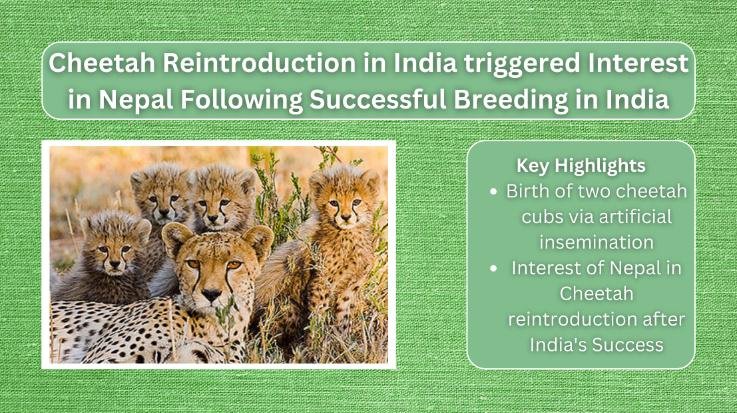Cheetah Reintroduction in India triggered Interest in Nepal Following Successful Breeding in India

After nearly seven decades of extinction, India recently celebrated the birth of two cheetah cubs via artificial insemination. Conservationists have successfully reintroduced cheetah cubs into India's protected areas through collaboration between the Wildlife Institute of India, the National Tiger Conservation Authority, and the Wildlife Trust of India. This news has revived interest in cheetah protection efforts in India and neighboring countries such as Nepal, where the big cats have been extinct for more than a century.
Due to India’s success, Nepalese experts are now asking for the reintroduction of cheetahs into the country's protected areas, where they once roamed openly before becoming extinct due to hunting and habitat loss. Conservationists are hopeful that successful cheetah breeding in India can be replicated in other parts of the world, including Nepal.
"Seeing the success of India's cheetah breeding program has inspired us to think that maybe we can also do something similar here in Nepal," said Tika Ram Adhikari, a senior wildlife conservation officer with the Department of National Parks and Wildlife Conservation in Nepal. "We are interested in exploring the possibility of reintroducing cheetahs into our protected areas and providing them with a safe habitat."
India project's success has given conservationists working to protect endangered species and restore ecosystems around the globe renewed enthusiasm, resulting in renewed interest in cheetah conservation efforts.

